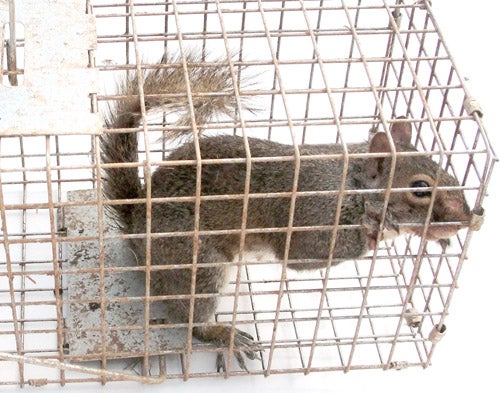Darrell Blackwelder: Weather one of many problems
Published 12:00 am Friday, February 20, 2015

- Cooperative Extension The best way to get a squirrell out of an attic is to block the holes it comes in.
With the cold weather we’ve experienced in the past few days, many people are concerned about their landscape plantings.
It’s really too early to tell, but as low temperatures have been, there will be significant cold damage. The damage will not manifest itself until later in the season, probably in the spring.
Other than the weather, many have called with a number of questions that may be of interest. Below are a few questions Cooperative Extension received last week.
Question: I have pecan trees that normally have a good crop, but over the past few years they have not done that well. Someone told me that they need a special fertilizer. What type of fertilizer do pecans need to make them bear?
Answer: Mature pecan trees often respond to applications of a complete fertilizer with zinc. Pecan fertilizers are custom blended containing zinc, along with major and micro nutrients. These fertilizers are often found in garden shops and farm supply outlets and other retail outlets. A soil test would also be in order to assure that other nutrients are in range. Go to http://content.ces.ncsu.edu/growing-pecans-in-north-carolina/ for more detailed information on growing pecans.
Question: I am in the middle of a building project and the lawn area is muddy. I know it’s too late to plant fescue, so what can I do to help control the mud and messy areas around my house?
Answer: Annual ryegrass is a temporary grass that germinates quicker than fescue. However, it’s a temporary fix for your condition. As the name applies, it’s a cool annual and will die at the first hint of hot weather in the early summer. So, be prepared to replant in May. Your chances on establishment of fescue will be better if planted in September. So in your situation, you’ll most likely plant fescue in May and again in September to a permanent establishment.
Question: I have a squirrel in my attic and I need to get it out. How is the best way to rid my attic of these pests?
Answer: The very first thing to do is find out where the pest is entering the house. Squirrels will leave the attic in search of food and water. The next step would be to install a one-way squirrel exclusion door on the major exit hole. The exclusion door can vary from a flap to a cone shaped devise that allows the squirrel to escape, but not come back into the attic. Setting traps in the attic may work, but in the end, you’ll have to find out where the squirrel is entering the building to keep them permanently out. You may also contact a licensed animal control agent to help eliminate the problem.
Darrell Blackwelder is an agricultural agent in charge of horticulture with the North Carolina Cooperative Extension in Rowan County. Email darrell_blackwelder@ncsu.edu or call 704-216-8700.




